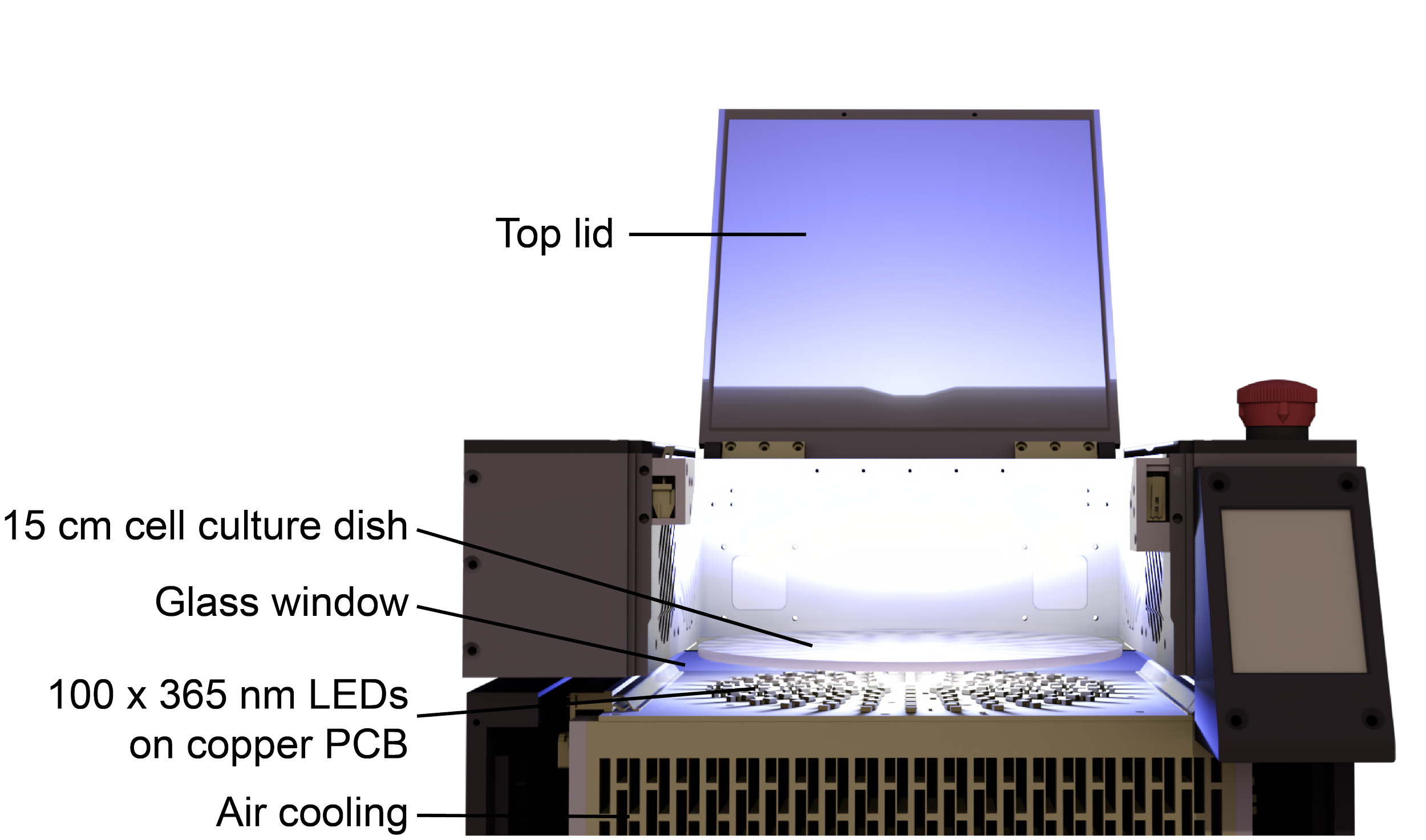UVEN is a UV-LED irradiation device for biological specimen. It was designed to shine very high-intensity 365 nm light onto a sample, while protecting it from heat and desiccation. Therefore, sample and LEDs are housed in two chambers separated by a glass window.
Data from our publication: The photo-reactive nucleoside 4-thiouridine (4SU) dissolved in water was irradiated with a conventional 365 nm UV bulb (bottom) or UVEN (top) and absorbance spectra recorded on a NanoDrop spectrophotometer. MS analysis of the same samples showed rapid formation of thymidine under release of hydrogen sulfide only upon UVEN irradiation.
Data from our new preprint: A photo-reactive derivative of a kinase inhibitor for photo-affinity labeling (PAL) was irradiated with conventional 365 nm UV bulbs (grey) or UVEN (blue). Remaining PAL probe was quantified for each irradiation time point by LC-MS.
Data from our second new preprint: MCF7 cells were metabolically labeled with the photo-reactive RNA nucleoside 4-thiouridine (4SU) and irradiated either with conventional 365 nm UV bulbs (blue) or with UVEN (magenta). Following irradiation, peptide-RNA crosslinks were selectively isolated using a novel workflow and protein-RNA interaction sites identified by LC-MS/MS.




